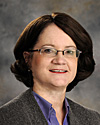Identifying Early Brain Markers in Infancy in Autism and Associated Developmental Disabilities
Thursday, April 20, 2023 • 1:00 - 2:00 p.m.

Brought to you by the Division of Extramural Research and Training Autism Program.
Presentation
Mark D. Shen, Ph.D.
Assistant Professor
University of North Carolina at Chapel Hill
Host:

Cindy P. Lawler, Ph.D.
[email protected]
Abstract
Our research uses neuroimaging to study the brain development of babies to identify early markers of autism and associated genetic syndromes. This presentation: (1) described how we conduct longitudinal MRI scans from 6-24 months of age to compare/contrast the brain growth trajectories of autism and different genetic conditions; (2) provided an overview of brain markers that were identified in the first year of life and were associated with later autism diagnosis and symptoms; and (3) detailed an example of how we reverse-translate those findings using mouse models to understand pathogenic mechanisms and inform potential therapeutic pathways.
Bio
Mark Shen, Ph.D. is a developmental neuroscientist and Assistant Professor at the University of North Carolina in Psychiatry, Neuroscience, and the Carolina Institute for Developmental Disabilities (CIDD). Dr. Shen is also the Co-Director of the CIDD Clinical Trials Program. Dr. Shen published the first MRI study to longitudinally measure brain growth trajectories in infants before they were diagnosed with autism, which demonstrated that brain enlargement in autism is observable in infancy. The goal of his lab’s research is to identify early biological markers and therapeutic targets for neurodevelopmental disabilities including: autism, fragile X syndrome, Down syndrome, and Angelman syndrome. For two consecutive years, Dr. Shen’s papers were ranked as “Top 10 Papers of the Year” by Autism Speaks, and he was awarded the Early-Career Investigator Award in 2018 by the International Society for Autism Research. Dr. Shen completed his Ph.D. at the UC Davis MIND Institute and his postdoctoral fellowship at UNC. Prior to his research career, he worked for 6 years doing clinical work with children and supported employment with adults with autism – where the many abilities of these individuals inspired him to conduct research that could help them achieve their greatest potential and quality of life.


